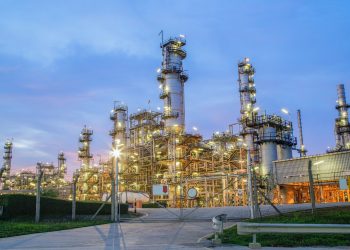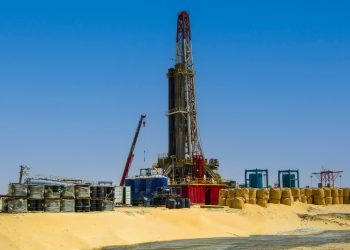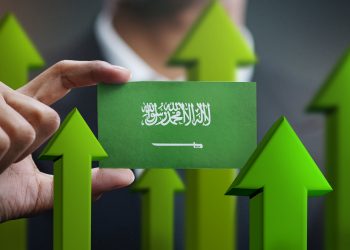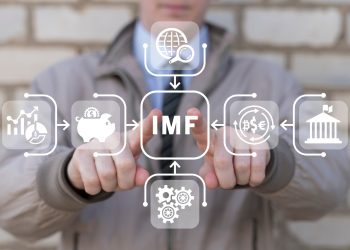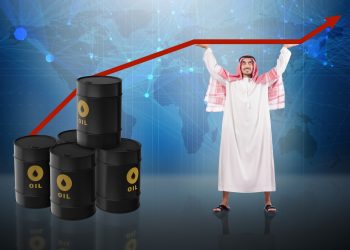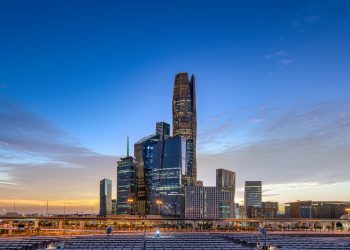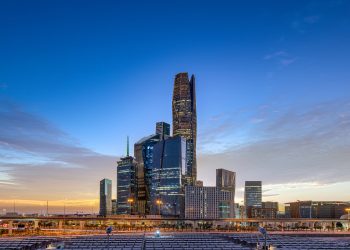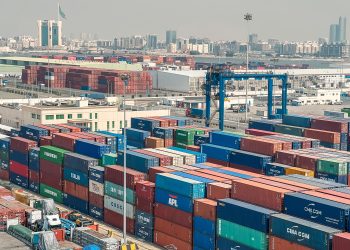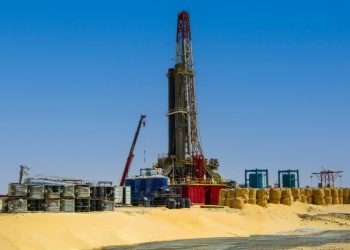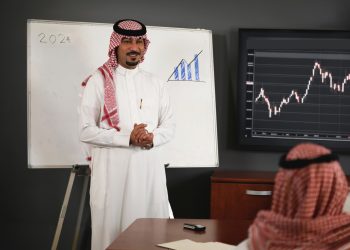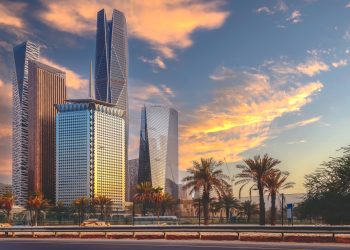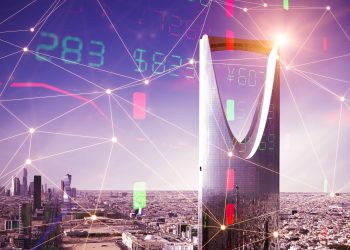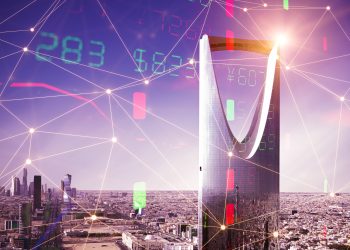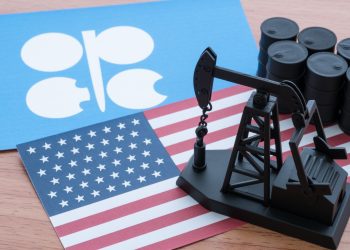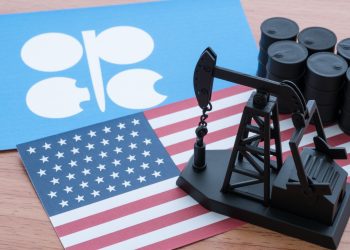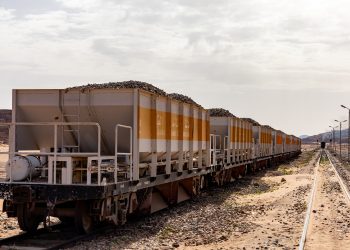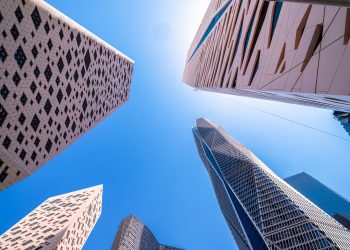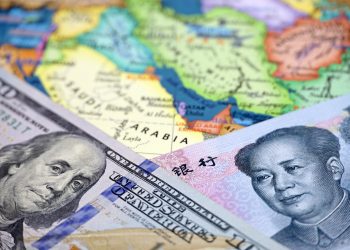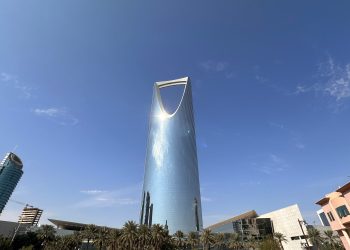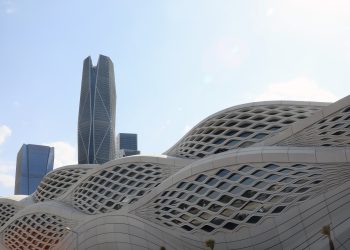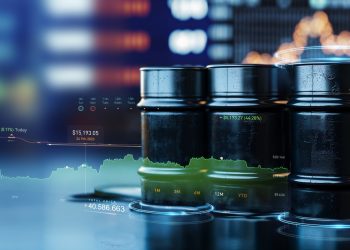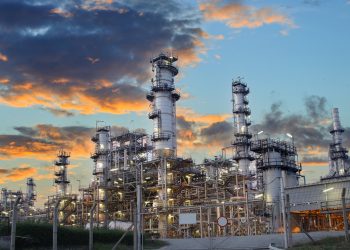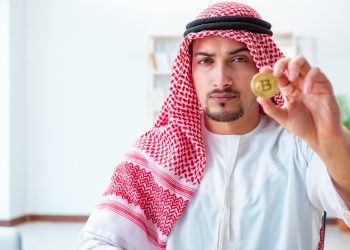Economy
Saudi Arabia’s IMF Leadership: Driving Global Financial Stability
The International Monetary Fund (IMF) has acknowledged Saudi Arabia’s ongoing support and leadership in global financial matters. During a recent International Monetary and Financial Committee (IMFC) meeting held in Diriyah, IMF Managing Director Kristalina Georgieva expressed appreciation for Saudi Arabia’s contributions, highlighting the country’s pivotal role in strengthening economic stability worldwide. Georgieva emphasized that Saudi Arabia’s current chairmanship of the...
Saudi Arabia’s Oil Challenge
Saudi Arabia's economy, heavily reliant on oil, is under pressure due to plummeting crude prices, forcing the nation to consider increasing debt or cutting expenditures. This situation complicates the funding of its ambitious economic diversification plans. The decline in oil prices, reaching near four-year lows, results from fears of a global economic slowdown and increased oil production by some OPEC+...
Saudi Oil Revenue Challenges Impact Vision 2030 Projects
Saudi Arabia is moving forward with massive initiatives like Neom and its flagship project, The Line, as part of its Vision 2030 plan. However, the country’s heavy reliance on oil revenue is creating challenges, especially as global oil prices drop. Revenue from oil, which remains the backbone of the Saudi economy, has recently declined due to falling prices. Last year,...
Saudi Non-Oil Sector Growth
Saudi Arabia's non-oil private sector experienced significant growth in March, spurred by strategic marketing efforts, pricing strategies, and a strengthening economy, as reported by Riyad Bank and S&P Global. The non-oil sector's dynamism is a testament to the government's economic initiatives. The Riyad Bank Saudi Arabia PMI recorded 58.1 in March, indicating robust growth, albeit slightly down from February's 58.4,...
Saudi Arabia Leads Emerging Economies
Saudi Arabia is committed to amplifying the voices of emerging economies within a key International Monetary Fund (IMF) committee, as stated by the country's finance minister. During the International Monetary and Financial Committee (IMFC) meeting in Diriyah, Mohammed Al-Jadaan commended the IMF and its members for their leadership during difficult times. Al-Jadaan, who recently became the IMFC chair, emphasized the...
Saudi Arabia Slashes Oil Prices for Asia
Saudi Arabia, the leading global oil exporter, has significantly reduced its oil prices for Asian markets, nearing their lowest point in four years. This decision aligns with OPEC+'s strategy to boost oil production rapidly. Saudi Aramco, the state oil company, decreased the May official selling price for its Arab Light crude by $2.30, setting it at $1.20 per barrel above...
Saudi Non-Oil Sector Growth Persists
Saudi Arabia's non-oil private sector continued to expand in March, driven by increased orders due to lower prices and better economic conditions. Although growth slowed from January's peak, the Purchasing Managers' Index (PMI) still indicated robust activity at 58.1, down slightly from 58.4 in February. The subindex for new orders fell to 63.2, down from February's high of 65.4. Despite...
Saudi Tourism Boosts Economy
Saudi Arabia is experiencing a surge in tourism, with inbound spending reaching a record $40.95 billion in 2024, a 13.82% increase from the previous year. This growth has elevated the travel balance surplus to its highest level, driven by a 9.5% rise in international visitors, totaling 30 million. This influx is reshaping the nation's economy and global image. Non-religious tourism...
Saudi Non-Oil Exports Surge to UAE
Saudi Arabia's non-oil exports to the UAE reached SR7.10 billion in January, marking a 10% increase from the previous month. This growth highlights the Kingdom's efforts to diversify its economy beyond oil. Machinery and mechanical equipment were the top exports, followed by transport parts. In December, non-oil exports to the UAE were SR6.46 billion. The increase in January underscores Saudi...
Saudi Budget Strain Amid Weak Oil Prices
Saudi Arabia is facing increased financial strain as oil prices remain weak, putting pressure on its extensive spending plans. With crude prices hovering around $70 per barrel—well below the level needed to balance the national budget—there are expectations the government will need to cut spending beyond the planned 3.7% reduction for next year. The kingdom’s ambitious economic transformation, which includes...
Saudi Unemployment Rate Drops to 7 Percent
Saudi Arabia’s national unemployment rate dropped to 7 percent in the last quarter, reflecting ongoing efforts to expand job opportunities as part of Vision 2030. Official statistics show a modest rise in the employment-to-population ratio, while overall labor force participation saw a slight decline. According to recent survey data, the combined unemployment rate for Saudis and non-Saudis fell to 3.5...
Saudi Credit Rating Upgrade: A+ Amid Vision 2030 Reforms
Saudi Arabia’s credit rating has been upgraded to A+ by a leading global ratings agency, reflecting progress in the nation’s social and economic reforms. Analysts highlight that the ongoing Vision 2030 initiative is providing the government with greater flexibility in managing investments and public debt, supporting growth across sectors such as construction, logistics, manufacturing, and mining. The report suggests that...
Saudi Arabia Credit Rating Upgrade Boosts Economic Outlook
Saudi Arabia has received a credit rating upgrade to A+ with a stable outlook, reflecting progress in economic reforms and capital market development. S&P Global Ratings highlighted robust non-oil sector growth and anticipated increases in oil production from 2025 as key drivers for medium-term economic prospects. The kingdom’s National Debt Management Centre expects this improved rating to help secure better...
Saudi Credit Rating Upgrade Reflects Vision 2030 Progress
Saudi Arabia’s credit rating has been upgraded by S&P Global Ratings, reflecting progress in the kingdom’s efforts to reduce its reliance on oil. The rating moved up to A+, with a stable outlook, highlighting improvements in governance and institutional structures as part of the ongoing Vision 2030 initiative. S&P noted that reforms have strengthened domestic capital markets and increased transparency...
Saudi Arabia’s Non-Oil Economy Defies IMF
Saudi Arabia's Non-Oil Economy Surges, Defying IMF Projections At the World Economic Forum in Davos, Saudi Arabia's finance minister, Mohammed Al-Jadaan, addressed concerns about the International Monetary Fund's recent revision of the Kingdom's economic growth forecast. The IMF adjusted Saudi Arabia's 2025 GDP growth projection to 3.3%, citing constraints from reduced oil production. However, Al-Jadaan emphasized that GDP alone doesn't...
Saudi Non-Oil Exports Surge 19.7% in November
Saudi Arabia's non-oil exports experienced a significant increase of 19.7% in November, reaching SR26.92 billion ($7.18 billion), highlighting efforts to diversify the nation's economy. The General Authority for Statistics reported that chemical products were the largest contributors, representing 24% of non-oil exports, with plastic and rubber products following at 21.7%. As part of the Vision 2030 initiative, Saudi Arabia aims...
Saudi Arabia’s Mining Ambitions
Saudi Arabia's Ambitious Mining Vision Saudi Arabia is ambitiously working to establish itself as a major hub for metals and mining. However, foreign investors are more interested in securing Saudi funds than committing their own capital. During the recent Future Minerals Forum in Riyadh, many participants expressed interest in Saudi investments but hesitated to invest themselves. They are waiting to...
Saudi Arabia’s Services Trade Growth in 2023
At the World Economic Forum in Davos, Commerce Minister Dr. Majid Al-Kassabi announced that Saudi Arabia's trade in services reached SAR 540 billion in 2023, marking a 7% annual growth. He emphasized the global importance of the services sector, which makes up around 65% of global GDP and 60% of foreign investments, and is the largest job provider, especially for...
Saudi Arabia’s Investment Milestone
Investment Milestone Saudi Arabia is making significant strides in its economic goals, surpassing expectations for investment in its primary economy. The Minister of Investment, Khalid Al-Falih, highlighted these achievements at the World Economic Forum in Davos. During a session with Bloomberg, Al-Falih discussed the Kingdom's Vision 2030, initially set in 2021, which aimed to channel $3.3 trillion into the economy...
Saudi-US Economic Partnership Boost
Saudi Arabia's Crown Prince Mohammed bin Salman has expressed intentions to enhance the kingdom's economic ties with the United States. In a conversation with President Donald Trump, he outlined plans to boost investments and trade relations by a substantial $600 billion over the coming four years, as reported by the Saudi State news agency.
Saudi Arabia’s Non-Oil Economic Growth Surges
Saudi Arabia's Non-Oil Economic Growth Exceeds Expectations During the World Economic Forum in Davos, Saudi Arabia's finance minister, Mohammed Al-Jadaan, addressed concerns about the International Monetary Fund's revised GDP growth forecast for the Kingdom. He emphasized that focusing solely on GDP overlooks other crucial indicators of economic health. The IMF adjusted Saudi Arabia's GDP growth forecast for 2025 to 3.3%,...
Saudi Arabia’s Economic Growth Exceeds Forecasts
Saudi Arabia's Economic Growth Surpasses Expectations Saudi Arabia's finance minister, Mohammed Al-Jadaan, addressed the World Economic Forum, emphasizing that the International Monetary Fund's (IMF) recent GDP forecast doesn't capture the full economic picture. Although the IMF adjusted Saudi Arabia's 2025 GDP growth to 3.3% due to oil production cuts, Al-Jadaan highlighted the robust growth of the non-oil sector. Under Vision...
Saudi Arabia’s $200 ROI Success
At the World Economic Forum in Davos, Saudi Arabia's Finance Minister, Mohammed Al-Jadaan, highlighted the nation's success in achieving a remarkable return on investment. For every dollar allocated, the country gained $200, doubling its initial target of $100. This achievement is attributed to the economic reforms driven by Vision 2030. Al-Jadaan emphasized the importance of these reforms in enhancing economic...
Saudi Arabia’s Tourism Boom: 30 Million Visitors
Saudi Arabia reported a record 30 million foreign tourists last year, driven by significant investments in hotels, luxury projects, and entertainment. This effort is part of the kingdom's strategy to become a major tourism hub. Tourism Minister Ahmed Al-Khateeb announced these figures at the World Economic Forum, noting an increase from 27.5 million in the previous year. These numbers include...
Saudi Oil Production Sees Modest Rise
Saudi Arabia's crude oil production saw a modest increase of 1.21% in November, reaching 8.92 million barrels per day, according to data from the Joint Organizations Data Initiative. Despite a 2.05% drop in overall crude exports to 6.21 million barrels per day, this level marked an eight-month high. Meanwhile, refinery crude exports jumped 36% year-on-year to 1.14 million barrels per...
Saudi Education Spending Surges by 91.5%
In Saudi Arabia, education spending soared by 91.5% to SR220.76 million ($58.8 million) as students returned to school following the midyear break. This sector was the only one to show positive growth, with transactions increasing by 60% to 153,000, according to the latest point-of-sale (POS) transactions report. Previously, the education sector had seen a 44.4% decline in transaction value, reaching...
Saudi Arabia’s Non-Oil Economy Growth
Saudi Arabia's non-oil economy is projected to grow significantly, with rates of 4.8% in 2025 and 6.2% in 2026. This growth is attributed to strategic investments in human capital and increased private sector activity, as outlined by Faisal Al-Ibrahim, the Minister of Economy and Planning. Speaking at the Davos Conference 2025 during a seminar titled "Future of Global Economic Growth,"...
Qatar-Saudi Economic Collaboration Talks
The Minister of Finance, Ali bin Ahmed al-Kuwari, recently held a meeting with Saudi Arabia's Finance Minister, Mohammed bin Abdullah al-Jadaan, at the World Economic Forum in Davos. The discussion focused on enhancing the bilateral relationship between Qatar and Saudi Arabia, with particular emphasis on investment, finance, and economic collaboration. Other topics of shared interest were also addressed during the...
Saudi Arabia’s Gas Production Surge in 2025
Saudi Arabia's natural gas production is set to increase by 4% in 2025, driven by major projects like Jafurah Phase 1 and Tanajib. The International Energy Agency (IEA) reports that Jafurah Phase 1 will contribute 2 billion cubic meters annually, while Tanajib will add 27 billion cubic meters per year. Saudi Aramco estimates the Jafurah gas field holds significant resources,...
Saudi Arabia’s $160B Mineral Investment
Saudi Arabia is making a substantial investment of $160 billion to develop its mineral resources, marking a strategic shift from its traditional oil dependency. This move aims to tap into critical minerals such as lithium, nickel, cobalt, and rare earth elements, essential for electric vehicles and renewable energy. The kingdom's initiative is designed not only to meet domestic demands but...



